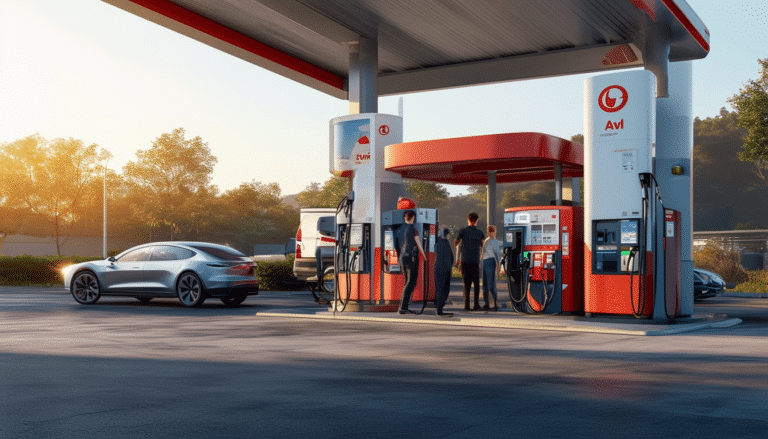How proper maintenance offers long-term fuel savings
The proper maintenance of a vehicle is a fundamental key to optimize its performance, but its relevance goes beyond mere functionality. Through regular and meticulous practices, it is possible not only to extend the lifespan of the engine but also to achieve a significant savings in fuel. A well-maintained vehicle operates more efficiently, which reduces spending and contributes to a more sustainable economy. With each maintenance action, the door opens to economic and environmental benefits that have long-term repercussions.
The proper maintenance of vehicles not only guarantees optimal performance but also translates into a significant savings in fuel over time. By performing regular checks and maintenance, resources are optimized, costly repairs are avoided, and the energy efficiency of the vehicle is improved. This article will explore the various ways in which good maintenance can influence fuel economy, aiming to motivate owners to adopt responsible habits.
The relationship between maintenance and fuel efficiency
The relationship between a well-maintained vehicle and fuel efficiency is direct. An engine in optimal condition uses fuel more efficiently, which translates into a lower need for refueling. By carrying out maintenance practices, wear on moving parts is reduced, and the accumulation of residues in the system is avoided. This ensures that the engine operates at an ideal performance and that fuel expenditure is minimal.
Regular maintenance practices
Carrying out regular maintenance does not mean just changing the oil. It involves a series of actions that ensure the health of the vehicle. Among the most important practices are:
Oil and filter change
The oil change and filter replacements are crucial for the proper functioning of the engine. Clean oil and filters in good condition allow the engine to operate without restrictions, improving combustion and reducing fuel consumption.
Tire inspection
The proper pressure of tires is essential for fuel efficiency. Deflated tires generate more resistance and, therefore, higher gasoline expenditure. Maintaining the recommended pressure significantly improves fuel economy.
Fuel system maintenance
The fuel system should be inspected periodically. Changing the fuel filter and cleaning the injectors can prevent failures that impact engine performance. A clean system functions more effectively, maximizes efficiency, and prevents waste of resources.
Economic benefits of effective maintenance
In addition to environmental benefits, proper maintenance positively impacts the economy of vehicle owners. Minimizing fuel consumption means lower refueling costs, which translates into significant savings over the year. Investing in vehicle care becomes a safe investment in the long term.
When neglect translates into excessive costs
On the other hand, neglect can lead to increased fuel consumption. A poorly maintained engine, worn tires, and a neglected fuel system can cause failures that require costly repairs. Ignoring maintenance often results in a much higher cost than caring for the vehicle preventively.
Resources to optimize maintenance
To ease the maintenance process, there are numerous guides and resources available. For example, the guide on the most effective oils can be of great help in choosing the right products. Additionally, avoiding maintenance lapses is key to ensuring fuel savings. Information is at everyone’s fingertips, and it is essential to utilize it to care for both the vehicle and the environment.
Integrating technology with maintenance
Technology can be a great ally in vehicle maintenance. It is possible to use digital tools that facilitate scheduling appointments for vehicle checks, or even apps that monitor fuel consumption. This way, areas for improvement can be quickly identified, and resource management can be optimized. To delve even deeper, it is interesting to learn how innovation affects performance, as in the case of new engine designs that impose significant efficiency benefits.
Conclusion
Through regular and preventive maintenance, not only is the proper functioning of the vehicle ensured, but also sustainable fuel economy. It is essential to adopt responsible practices to ensure the vehicle’s longevity and reduce operational costs. By applying these tips and staying informed, considerable savings in the long term can be achieved.
The proper maintenance of a vehicle not only ensures its optimal performance but also plays a crucial role in the efficiency of fuel consumption. When regular care practices are carried out, operational costs can be significantly reduced and the lifespan of the engine can be extended. This directly translates into lower gasoline spending, benefiting both the vehicle owner and the environment.
Maintenance routines, such as changing fuel filters, checking the exhaust system, and caring for the engine, are essential for efficient operation. For example, a well-tuned engine tends to consume less fuel, resulting in notable savings over time. Furthermore, proper pressure in the tires also influences fuel performance; a slight decrease in pressure can lead to an increase in consumption.
On the other hand, lack of maintenance can lead to costly breakdowns and increased fuel expenditure. Ignoring signs of wear or failing to perform oil changes can result in inefficient vehicle operation, causing more gasoline consumption than necessary. In the long run, this becomes a negative investment.
In summary, adopting preventive maintenance habits represents an intelligent strategy to optimize fuel economy. Investing in these practices not only ensures better vehicle performance but will also result in considerable economic savings. With each check and adjustment, lower fuel spending is guaranteed, contributing to more sustainable and responsible mobility.





